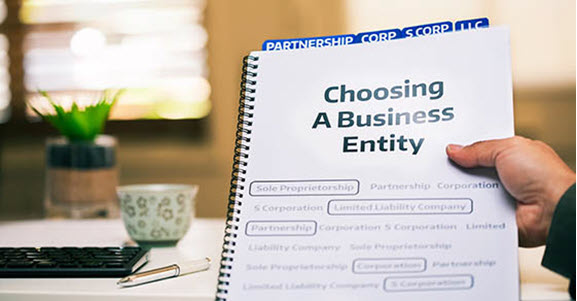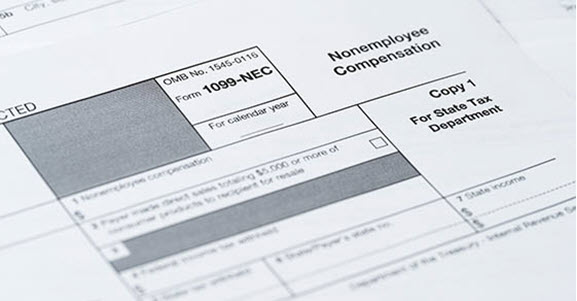When selling property used in your trade or business, it is crucial to understand the tax implications involved. Numerous complex rules may apply, but for the sake of simplicity, let’s focus on land or depreciable property used in your business that you have held for more than a year.
Note: Different rules apply to property held primarily for sale to customers, intellectual property, low-income housing, farming or livestock-related property, and other types of property.
Basic Rules
Under tax law, gains and losses from the sale of business property are netted against each other, with the following tax treatments:
- Net Gain: If the netting of gains and losses results in a net gain, it typically qualifies for long-term capital gain treatment, subject to recapture rules discussed below. Long-term capital gains generally receive more favorable tax treatment than ordinary income.
- Net Loss: If the netting results in a net loss, the loss is fully deductible against ordinary income, avoiding the limitations typically applied to capital losses.
Long-term capital gain treatment for business property net gains is restricted by “recapture” rules. These rules reclassify certain amounts as ordinary income due to prior ordinary loss or deduction treatments.
Recapture Rules
A special recapture rule applies exclusively to business property. If you have incurred a business property net loss within the past five years, any subsequent business property net gain is treated as ordinary income rather than long-term capital gain.
Different Types of Property
The Internal Revenue Code specifies different provisions for various types of property:
- Section 1245 Property: This category includes all depreciable personal property (tangible or intangible) and certain depreciable real property used for specific functions. Upon selling Section 1245 property, any gain must be recaptured as ordinary income to the extent of previous depreciation deductions.
- Section 1250 Property: Generally consisting of buildings and their structural components, Section 1250 property placed in service after 1986 does not subject the long-term capital gain attributable to depreciation deductions to recapture. However, for most noncorporate taxpayers, the gain attributable to depreciation deductions (up to the business property net gain) is taxed at a maximum rate of 28.8% (25% plus the 3.8% net investment income tax), as opposed to the standard 23.8% rate (20% plus the 3.8% net investment income tax) for long-term capital gains.
Different rules apply to Section 1250 property placed in service before 1987 but after 1980, and to property placed in service before 1981.
As demonstrated, even with simplified assumptions, the tax treatment of selling business assets can be complex. To accurately determine the tax implications of such transactions, or if you have further questions, please contact us for professional assistance.
Q&As
What is the basic tax treatment of net gains and losses from the sale of business property?
Gains and losses from the sale of business property are netted against each other under tax law. If this netting results in a net gain, it typically qualifies for long-term capital gain treatment, which is generally more favorable than ordinary income treatment. Conversely, a net loss is fully deductible against ordinary income. It’s important to note that long-term capital gain treatment for business property net gains is limited by “recapture” rules, which may reclassify certain amounts as ordinary income due to prior ordinary loss or deduction treatments.
What is the “recapture” rule in relation to business property net gains?
The “recapture” rule requires that any net gain from the sale of business property be treated as ordinary income rather than long-term capital gain to the extent of any business property net loss incurred within the previous five years. This ensures that previously claimed ordinary losses or deductions are “recaptured” and taxed as ordinary income upon the sale of the property.
How is Section 1245 property treated under the tax code when sold?
Section 1245 property includes all depreciable personal property, both tangible and intangible, as well as certain depreciable real property used for specific functions. When Section 1245 property is sold, any gain must be recaptured as ordinary income to the extent of the earlier depreciation deductions taken on that asset. This means that the amount of the gain that equals the total depreciation deductions previously claimed will be taxed as ordinary income.
What are the tax implications for selling Section 1250 property placed in service after 1986?
For Section 1250 property placed in service after 1986, the long-term capital gain attributable to depreciation deductions is not subject to depreciation recapture. However, for most noncorporate taxpayers, the gain attributable to these depreciation deductions, to the extent it does not exceed the business property net gain, will be taxed at a rate of no more than 28.8% (which includes the 25% rate plus the 3.8% net investment income tax). This is in contrast to the maximum 23.8% rate (20% plus the 3.8% net investment income tax) that generally applies to long-term capital gains for noncorporate taxpayers.
What factors should be considered when determining the tax implications of selling business property?
Several factors should be considered, including the type of property being sold (e.g., Section 1245 or Section 1250 property), the length of time the property was held, the amount of depreciation previously claimed, and any prior net losses related to business property. Additionally, the taxpayer’s overall income, tax bracket, and any applicable recapture rules will affect the tax treatment of the gain or loss from the sale. Consulting with a tax professional is advisable to navigate these complexities and optimize tax outcomes.






